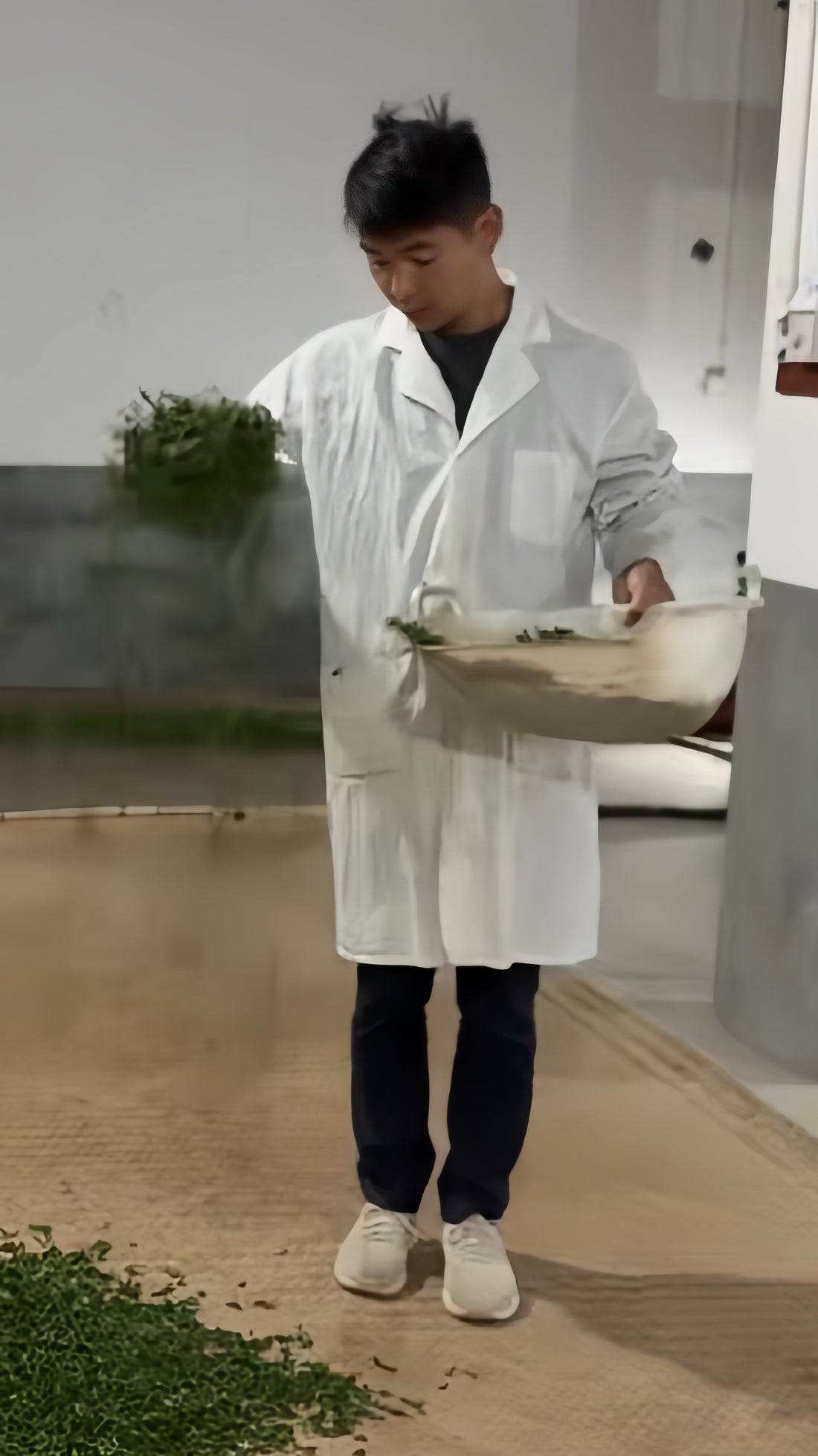
Enshi Wildbrook Village Portrait 3 | A Barber’s Hands, A Tea Master’s Heart
Share
Wildbrook · Enshi Mountains
From scissors to tea leaves: how Jun found his way home to an old garden and an older promise.
Before Jun ever became a tea apprentice, he was a barber.
Every day, his hands only knew the hum of clippers and the rhythm of scissors. He worked with focus—simple and steady.

Like most young men from the village, Jun once left to earn wages in the cities. But no matter how far he went, he carried a single image: the organic tea garden behind the village, planted in the 1970s by Master Zhou.
Back then, Zhou was already a recognized inheritor of Enshi Yulu—the only needle-shaped steamed green tea still made in China. He had studied under Yang Shengwei, the national inheritor of the craft, and in the 1980s became the only person in all of Enshi granted the chance to study tea in Japan.
His teas were legendary. Buyers would queue through the night outside the factory, just to secure a few packets at dawn—Black Friday before Black Friday had a name. He even printed “tea tickets” for villagers to redeem for wages; for a time, they passed hand to hand like currency. “
Zhou, you’re issuing your own money,” people teased.
But Zhou was never only about tea. He set aside scholarships for village children admitted to the best high school in Enshi. Even now, decades later, whenever he returns, every household insists he come sit, come drink, come share his stories.

After the Master Left
When Zhou eventually left the Wildbrook fields, the garden lost its heir. Villagers knew how to plant tea, but few knew how to truly make it.
Tea-making is a craft hidden from the eye.
Drinkers cannot see it; buyers cannot touch it. No one stands in the garden each day to check your work.
Only the maker knows how much honesty—or compromise—has gone into each leaf. And organic tea demands even more: integrity, patience, and the will to endure hard labor.
Three Years
That was when Jun came back. He started with his family’s abandoned tea plots, with nothing but bare hands. He fed the trees with rapeseed cakes and cow manure, pulled weeds one by one with aching fingers.
He found an old tea-making manual and learned from its worn pages. He burned batches, spoiled leaves, repeated mistakes. It was impossible to master this way. And still—he did not quit. For three years, he persisted.

The Return of Zhou
Then Zhou returned. His own son was not in the tea trade, so Jun became, in spirit, his son of tea.
Zhou guided him, lent tools, invested in his craft—until the garden began to resemble the quiet glory of a decade past.
The tea fields remain small. Harvest comes only a few times each month, and only after the plants have absorbed sun and rain in measured cycles. The scale is too modest to afford organic certification. And yet, the tea could not be more genuinely organic.
One year, Zhou and Yang, alongside the local newspaper, came to write and film. The camera did not find a barber; it found a man rooted in soil, a craftsman shaping leaves with devotion.
This garden holds an unofficial certification—the kind that lives in work, not paperwork.

“A business that begins without the right heart,” Zhou said, “will only grow more crooked the larger it becomes. But if the heart is right, even the smallest effort is worth protecting.”
From that moment, Jun put away his scissors and followed Zhou’s old ways. The same single-minded devotion he once gave to hair, he gives now—completely, humbly—to tea.
For now, Jun can make only two kinds of tea.
Through the cooperative, we are teaching him more: white tea, floral blends, and tea flowers.
One day, through his hands, we hope more flavors of Enshi will come alive.
Story collected in Wildbrook Village · Enshi, Hubei by June